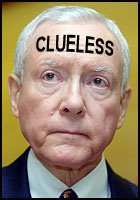Const. Doug Gutteridge of Chatham-Kent, Ontario made an interesting comment last Wednesday in reference as to why his police department continues to find marijuana plants being grown in his town. “Unfortunately,” the officer states, “there are those out there who want to make a fast buck at the expense of the citizens.” I sincerely hope Mr. Gutteridge is talking about his own police department and fellow colleagues, and not the green thumbs responsible for growing and selling marijuana. After all, the $1.4 million worth of plants pales in comparison to the amount of money police departments across the country receive from federal grants for drug arrests and the property taken under asset forfeiture laws. Furthermore, if the plant (and all drugs for that matter) were taken above ground and regulated by the government and administered in a safe, healthy, nonviolent, and nondangerous way/place (thus destroying the black market status of marijuana and other drugs), the possibility to make millions by their manufacture and sale would be severely reduced.
And, do we really want to get into the part about the citizens’ expense? The destruction of personal choice, freedom, and liberty, the ability to choose to ingest a substance thousands of years old disappears because of the War On Drugs, not a person growing pot. The billions of taxpayer dollars wasted every year sending non-violent offenders through the court process and into prison under these draconian, ineffective policies doesn’t seem to be making much of a difference either. And gang-like drug cartels, and the violence associated with them, is created by the black market (an obvious product of the Drug War), not the drugs themselves. Perhaps most importantly, the health of the citizens is jeopardized by the War On Drugs due to scare tactics and false propaganda circulated by the government, instead of informing the public of the real (side)effects of certain drugs.
It’s high time (pun intended) for these officials to start thinking clearly. The reason, Const. Gutteridge, you keep finding pot in your town is because there is a demand for it, there always has been and there always will be. And as long as that demand exists, people will be willing to take the risk to cash in on an enormous amount of money (one plant, they estimate, is worth $1,000). But the billions you pull in from occasionally catching one of these entrepreneurs totals so much more. And it’s not these same entrepreneurs harming society at large, it is you and the people you work for. Isn’t it obvious that your efforts have been ineffective at best (counterproductive is more accurate)?
But drug law reformers do not lose hope. They haven’t failed to change completely. Since 1965, the federal government has increased funding for the War On Drugs by more than 300 times from $65 million to $19.9 billion. I guess 40 years of failed policy and hundreds of billions of wasted dollars is not enough to draw a conclusion from?
